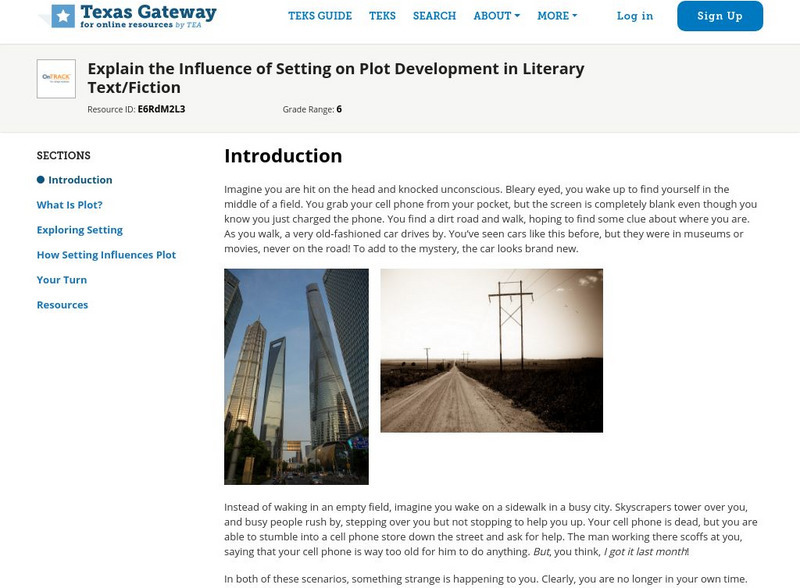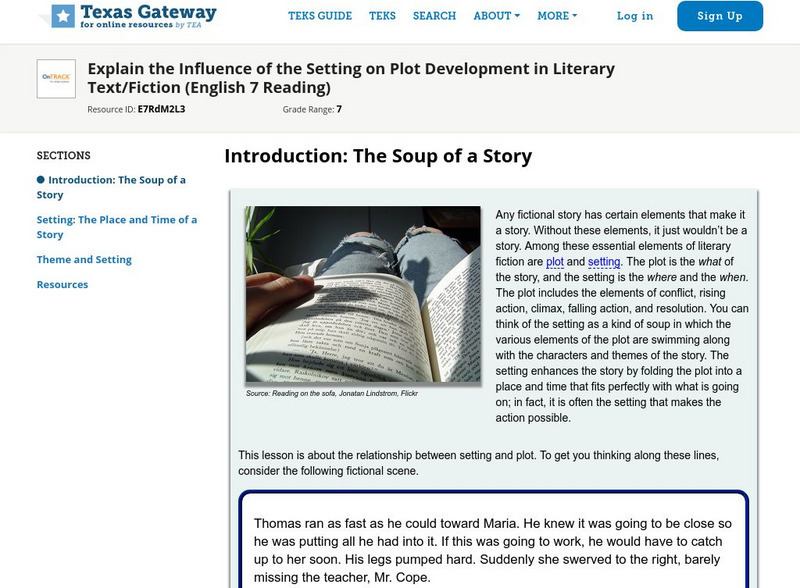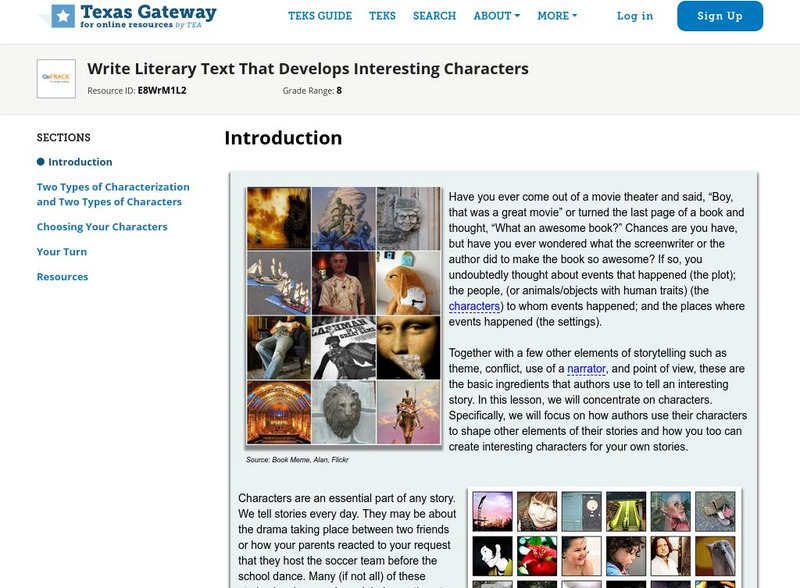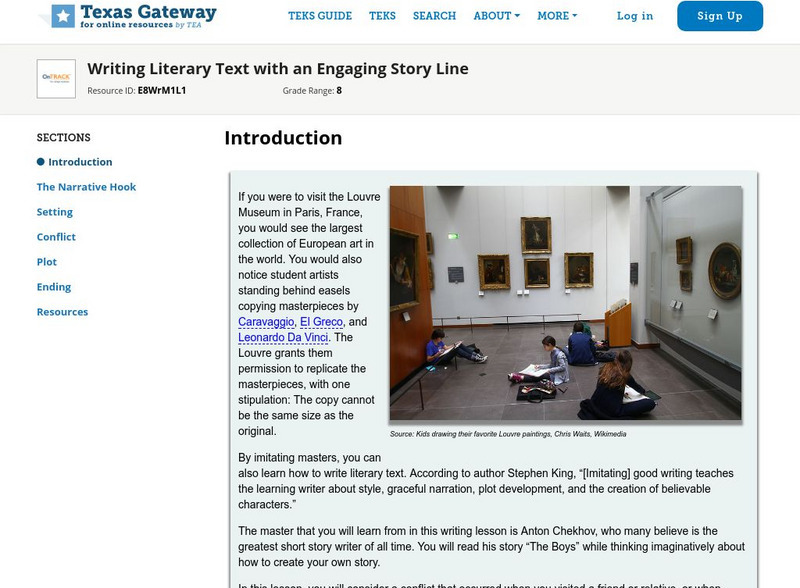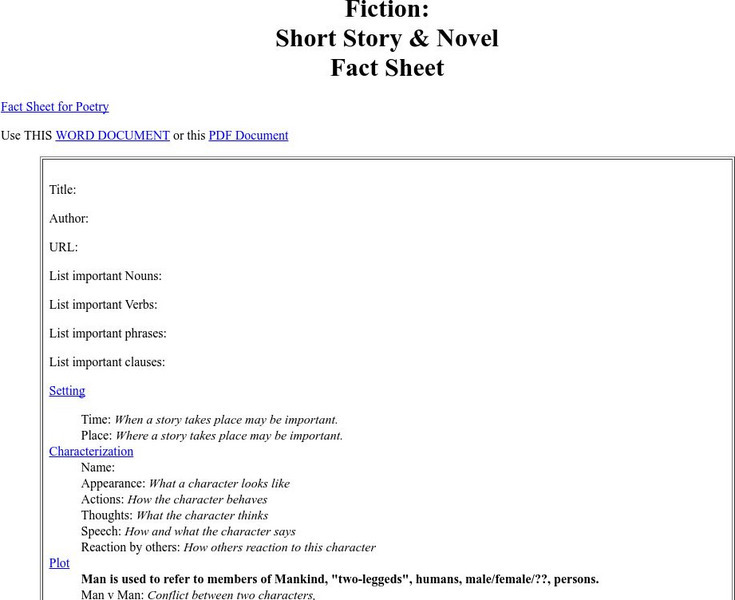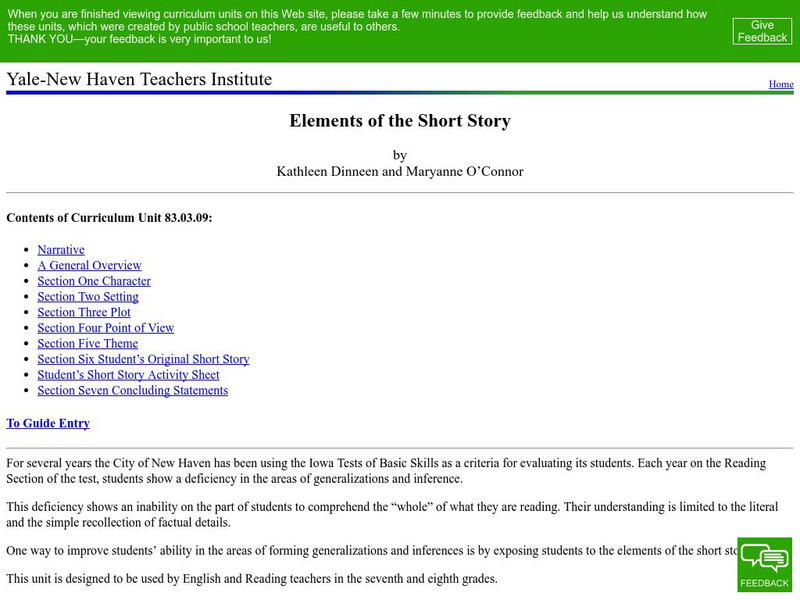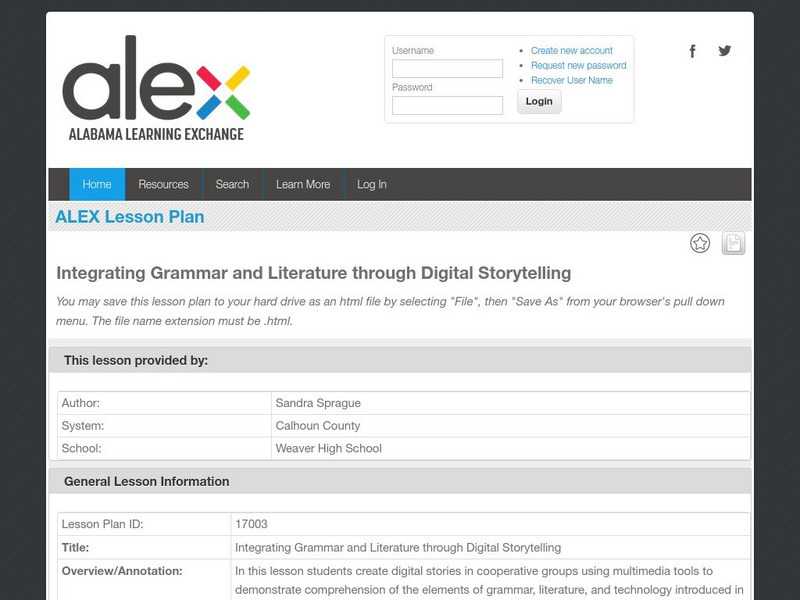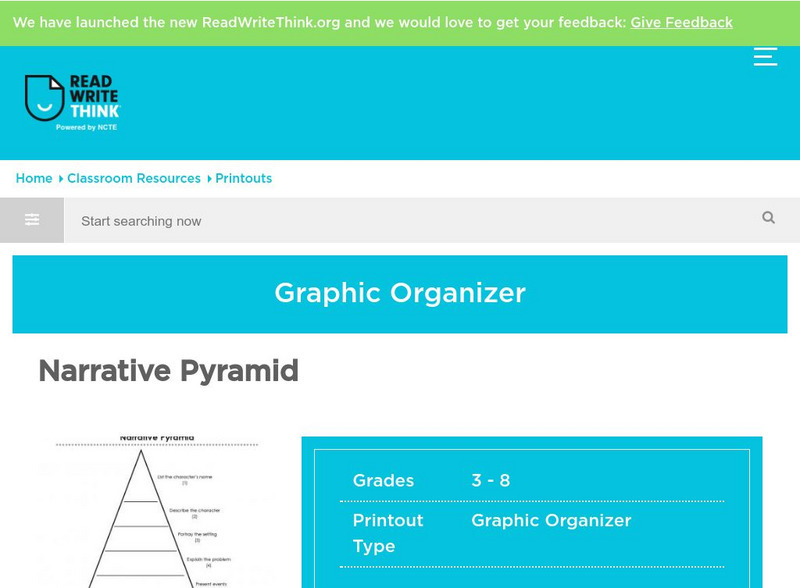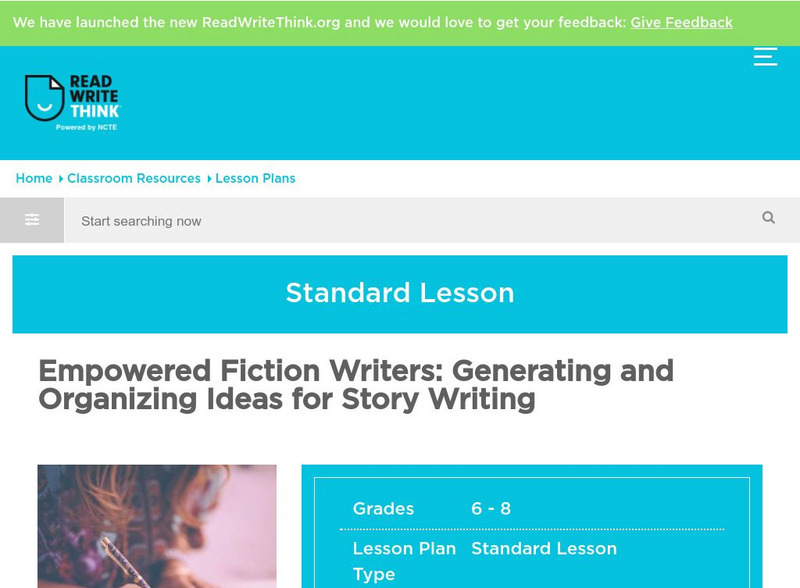Texas Education Agency
Texas Gateway: Explain Influence of Setting on Plot Development in Literary Text
In this lesson, students will review two elements of fiction, setting and plot, and learn how the setting influences the plot in stories.
Texas Education Agency
Texas Gateway: Explain Influence of Setting on Plot Development in Literary Text
This lesson is about the relationship between setting and plot. The setting enhances the story by folding the plot into a place and time that fits perfectly with what is going on; in fact, it is often the setting that makes the action...
Texas Education Agency
Texas Gateway: Analyze the Central Characters in Literary Text/fiction
In this lesson, students will learn some ways that writers reveal the complexity of their characters. By closely analyzing one author's characters, they will come to see how their words, actions, and interactions with one another can...
Texas Education Agency
Texas Gateway: Analyze Development of Plot Through Characters in Literary Text
[Accessible by TX Educators. Free Registration/Login Required] Often characters are a driving force behind the plot. In this lesson, students will learn how complex, multilayered characters contribute to the development of a story's plot...
Texas Education Agency
Texas Gateway: Compare/contrast Themes and Genres in Literary Texts
Determining the theme is not easy; you have to use the clues the author leaves to figure it out yourself. The author implies information about the story through plot points, setting, and characters. You infer and draw conclusions based...
PBS
Pbs Learning Media: Literary Elements and Techniques Collection
These animated shorts introduce or review literary elements and techniques like theme, setting, figurative language, characterization, and conflict. They can be used when students are just learning how to identify the most commonly used...
Texas Education Agency
Texas Gateway: Write Literary Text That Develops Interesting Characters
A learning module that teaches students how to write an literary text with good characterization in four lessons: Introduction, Two Types of Characterization and Two Types of Characters, Choosing Your Characters, and Your Turn.
Texas Education Agency
Texas Gateway: Writing Literary Text With an Engaging Story Line
A learning module that teaches students how to write an engaging literary text in six lessons: Introduction, The Narrative Hook, Setting, Conflict, Plot, and Ending.
PBS
Pbs Learning Media: Out of Proportion
Students are asked to explain how natural disasters affect environmental health.
Ted Nellen
Cyber English (By Ted Nellen): Fiction: Short Story & Novel Fact Sheet
This is a short story or novel fact sheet offered as a Word document or a PDF. It includes places for title; author; URL; list of important nouns, verbs, phrases, and clauses; setting (includes definition); characterization (including...
Ted Nellen
Cyber English (By Ted Nellen): Characterization
This is a glossary entry for the term "Characterization" including a definition and the characteristics to be developed: Character's appearance, actions, thoughts, voice, and reaction from others.
Yale University
Yale University: Elements of the Short Story
This unit from the Yale University on elements of the short story is designed to develop student comprehension skills, particularly making inferences and generalizing. It also involves students in reading a number of short stories to...
Curated OER
Mc Graw Hill: Part 1 Reading: Literature: Describe Characters
A reference guide on how to analyze characters in a story.
Curated OER
Mc Graw Hill: Part 1 Reading: Literature: Describe a Setting
Do you know how to find the setting of a story? Learn how to find the when and where a story took place on this site.
Curated OER
Mc Graw Hill: Structure Within a Story
Learn why structure is important when organizing a story then read an excerpt from the story "Three over Four" to practice how structure helps to develop the story's theme, setting, and plot.
Polk Brothers Foundation Center for Urban Education at DePaul University
De Paul University: Center for Urban Education: I Can Analyze a Story or History [Pdf]
This graphic organizer can be used to help students analyze a story or a historical event. Students will look closely at the story's characters or people involved in the historical event. Then they will summarize the story or event, and...
Other
Frontier Central School District: Determining the Theme of a Literary Work [Pdf]
Guidance and exercises for finding the theme of a literary work, including a list of commonly seen universal themes.
Alabama Learning Exchange
Alex: Grammar and Literature Through Digital Storytelling
In this lesson students create digital stories in cooperative groups using multimedia tools to demonstrate comprehension of the elements of grammar, literature, and technology introduced in the lesson. Students become actively involved...
ReadWriteThink
Read Write Think: Narrative Pyramid
A printable narrative pyramid where students can record information about a story including the character, setting, problem, main events, and solution. Directions on how to use this type of graphic organize as well as lists of teaching...
ReadWriteThink
Read Write Think: Empowered Fiction Writers: Generating and Organizing Ideas
Do your students' minds go blank when they confront a blank piece of paper? Speedwriting can help them get started with writing as well as come up with topics to write about. They can then incorporate their key ideas and phrases into a...
ReadWriteThink
Read Write Think: Lights, Camera, Action: Interviewing a Book Character
Students get the inside scoop on a story when they create interview questions and answers for characters in the books they read.
Quia
Quia: Elements of Literature: Rags to Riches
Answer the 15 questions in this game about literary elements for the prize of fame and fortune. Java is required.
Quia
Quia: Rags to Riches: Literary Elements
Show off your knowledge of literary elements by playing this game. Just answer 15 questions correctly, and be the big winner.
Other
Georgia Perimeter: Choosing and Writing for an Audience
This resource goes extensively into the importance of establishing an audience when writing. It also defines types, how to choose, and how to write for an audience.


